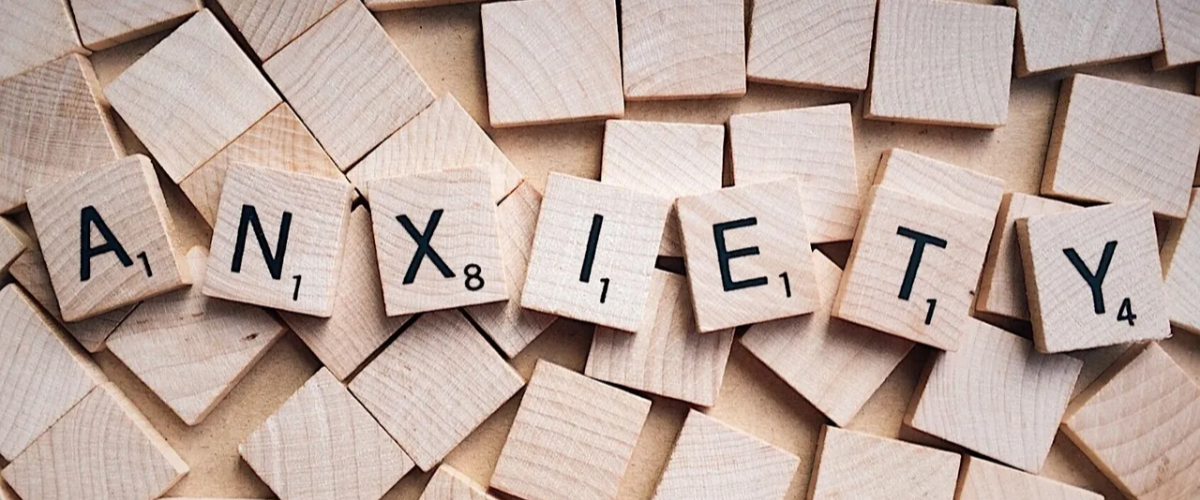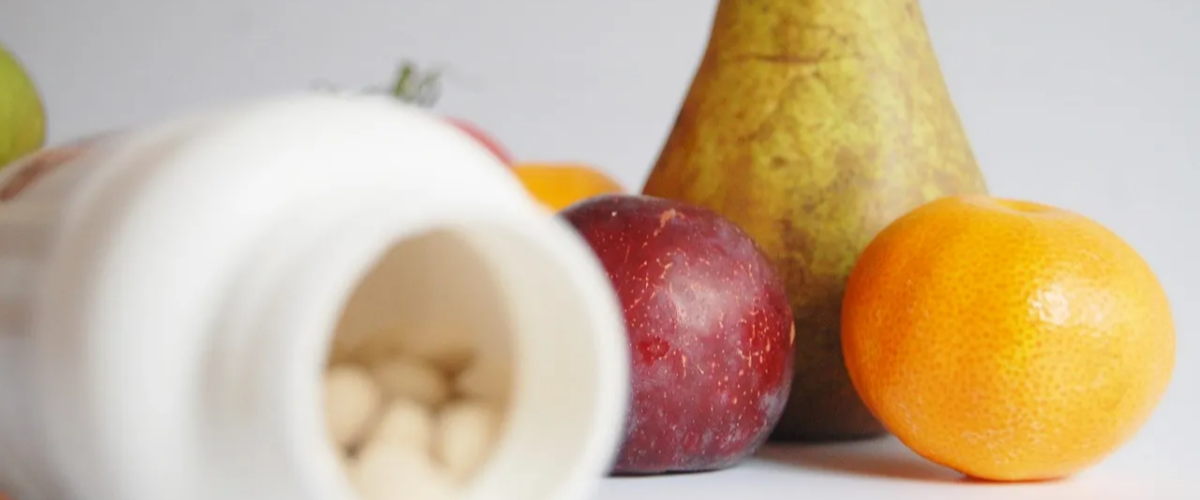Anxiety is a common mental health problem that affects millions of people around the world. A holistic approach to managing anxiety involves making lifestyle changes and incorporating anxiety-relieving supplements into your daily routine. By engaging in stress-reducing activities, maintaining a healthy diet, and taking calming supplements, individuals can effectively manage anxiety and improve overall health. The goal of taking a holistic approach to managing anxiety is to improve overall well-being and find a sense of balance and calm. By making positive lifestyle changes and taking anxiety-relieving supplements, individuals can increase their ability to take control of their mental health and live a more fulfilling life.
Feeling anxious is a common experience, but it can also be very distressing. “Why am I anxious?” This is a question many people ask, often with frustration and confusion. There are many factors that can contribute to feelings of anxiety, and understanding these factors can be an important step in managing and overcoming anxiety.
Both environmental and biological factors can contribute to feelings of anxiety. For some people, anxiety may be the result of a genetic predisposition to mental health problems. In these cases, the question isn't "Why am I anxious?" but rather recognizing that anxiety is part of their genetic makeup. However, even for those who are genetically predisposed, environmental factors can still play a significant role in triggering feelings of anxiety. Stressful life events, traumatic experiences, and chronic stress can all contribute to the development of anxiety symptoms.
Another factor that plays an important role in anxiety is physiological factors. Imbalances in neurotransmitters such as serotonin and dopamine may contribute to anxiety symptoms. Hormone imbalances, thyroid problems, and other underlying health conditions may also contribute to the development of anxiety.
In addition to biological and environmental factors, our thought patterns and beliefs can significantly contribute to feelings of anxiety. Negative thought patterns, such as catastrophizing or overgeneralizing, may contribute to persistent feelings of anxiety. Beliefs in control, uncertainty, and safety also influence anxiety symptoms. For some people, anxiety may be related to past experiences or specific phobias, causing heightened feelings of fear and worry.

1. Excessive worry
One of the most common symptoms of anxiety is excessive worry. This can include worries about daily activities, such as work or school, as well as worries about more general aspects of life, such as health, family and finances. People with anxiety disorders may find it difficult to control their worries and may experience physical symptoms such as restlessness, fatigue, and difficulty concentrating.
2. Irritability
Another common symptom of anxiety is irritability. People with anxiety disorders may feel nervous or easily agitated and may become irritable or angry over minor problems. This can have a negative impact on relationships and make it difficult to participate in social activities or interact with others.
3. Physical symptoms
Anxiety can also manifest as a variety of physical symptoms, including muscle tension, headaches, nausea, tremors, and a rapid heartbeat. These physical symptoms can be distressing and may lead a person to believe they have a physical illness rather than a mental health problem.
4. Sleep disorders
Many people with anxiety disorders have disrupted sleep patterns. This may include difficulty falling asleep, staying asleep, or getting a restful sleep. Sleep disorders can increase anxiety and make it difficult to function effectively throughout the day.
5. Avoidance behavior
People with anxiety disorders may engage in avoidant behaviors to cope with their feelings. This may involve avoiding social situations, work or school responsibilities, or other activities that may trigger feelings of anxiety.

Anxiety relief supplements often contain a blend of natural and chemical ingredients known for their calming and mood-balancing properties.
One of the key mechanisms of action of anxiety-relieving supplements is their ability to regulate levels of neurotransmitters in the brain. Neurotransmitters are chemical messengers that carry signals between nerve cells, and imbalances in these neurotransmitters have been linked to anxiety and mood disorders. By targeting these neurotransmitters, anxiety relief supplements can help restore balance and reduce feelings of anxiety.
For example, rhodiola rosea, another common ingredient in anxiety-relief supplements, has been found to regulate levels of serotonin and dopamine, two neurotransmitters that play key roles in regulating mood and anxiety. By enhancing the activity of these neurotransmitters, rhodiola can help promote feelings of calm and relaxation.
In addition to targeting neurotransmitters, anxiety relief supplements often contain ingredients that have anxiolytic or anxiety-reducing effects. For example, the amino acid L-theanine found in green tea has been shown to promote relaxation and reduce feelings of stress and anxiety. L-Theanine works by increasing levels of GABA, a neurotransmitter that has a calming effect on the brain.
Overall, anxiety relief supplements work through a combination of mechanisms to reduce feelings of anxiety and promote feelings of calm and well-being. By targeting neurotransmitters, regulating stress hormones, and promoting relaxation, these supplements offer a natural and comprehensive approach to managing anxiety.
Anxiety is a common mental health problem that affects millions of people around the world. It can take many forms, such as generalized anxiety disorder, social anxiety disorder, or panic disorder. While there are many different treatment options available, some people may find that anxiety supplements can relieve anxiety.
1. Magnesium L-Threonate
Magnesium is an essential mineral that plays a vital role in more than 300 biochemical reactions in the body, including muscle and nerve function, blood sugar regulation, and blood pressure control. It is known to have a calming effect on the brain and nervous system, making it a popular choice for those who want to control anxiety.
Magnesium L-threonate is a unique form of magnesium that has been shown to penetrate the blood-brain barrier more effectively than other forms of the mineral. This is important because it means magnesium L-threonate may have a greater impact on brain function and mood regulation.
Research shows that low levels of magnesium in the body may be linked to an increased risk of anxiety and depression. By supplementing with magnesium L-threonate, individuals may be able to support their overall mental health and experience greater feelings of calm and relaxation.
A study published in the journal Neuron found that magnesium L-threonate enhanced memory and learning in rats by strengthening synaptic connections in the brain. This is important because anxiety and stress often impair cognitive function, making it difficult to concentrate. By improving brain function, magnesium L-threonate may help individuals better cope with the effects of anxiety.
In addition to potential cognitive benefits, magnesium L-threonate may also help relieve physical symptoms of anxiety, such as muscle tension and restlessness. By calming the nervous system and promoting relaxation, this supplement can relieve the physical manifestations of anxiety, allowing individuals to feel more comfortable with their bodies.
2. Lithium orotate
Lithium orotate is a natural mineral that has been used for decades to treat a variety of mental health issues, including relieving anxiety.
Lithium orotate is thought to work by modulating neurotransmitter activity in the brain, specifically by increasing serotonin production. Serotonin is a chemical messenger that helps regulate mood, happiness, and anxiety. Low serotonin levels have been linked to various mental health disorders, including anxiety. By increasing serotonin levels, lithium orotate may help relieve symptoms of anxiety and improve overall mental health.
A study published in the journal Neuropsychobiology found that lithium orotate helped reduce symptoms of anxiety and agitation in alcoholics.
Additionally, lithium orotate has been shown to have neuroprotective properties, meaning it can help protect the brain from damage caused by stress and anxiety. Chronic stress and anxiety can cause atrophy of the hippocampus, a region of the brain responsible for regulating mood and memory. By protecting the brain from these effects, lithium orotate may help prevent the development of anxiety disorders.
3.NAC
Research shows that NAC can relieve various forms of anxiety, including generalized anxiety disorder, social anxiety disorder, and obsessive-compulsive disorder. Its mechanism of action is believed to involve the regulation of glutamate, a neurotransmitter that plays a key role in the brain's stress response. By regulating glutamate levels, NAC may help restore balance and reduce the severity of anxiety symptoms.
A study published in the Journal of Clinical Psychopharmacology found that OCD patients who took NAC experienced significantly reduced symptoms compared to those who took a placebo. This promising finding suggests that NAC may be a valuable addition to treatment options for anxiety-related disorders.
In addition to its potential effects on neurotransmitters, NAC's antioxidant properties are also thought to contribute to its anxiolytic (anxiety-reducing) effects. Oxidative stress occurs when there is an imbalance between free radicals and antioxidants in the body, and it is linked to anxiety and other mood disorders. By neutralizing free radicals and reducing oxidative damage, NAC may help relieve anxiety and promote emotional well-being.
Additionally, NAC has been found to have anti-inflammatory effects, which is increasingly recognized to play a role in the development and exacerbation of anxiety disorders. By targeting inflammation in the brain and body, NAC may help calm the nervous system and reduce the physical and emotional symptoms of anxiety.
4. L-theanine
L-Theanine is one of the most popular anxiety-relieving supplements. L-theanine is an amino acid found in tea and is known for its calming effects. It works by increasing the production of GABA, a neurotransmitter that promotes relaxation and reduces stress. Research shows that L-theanine can help reduce anxiety and improve cognitive function. Many people find it helpful in managing daily stress and promoting a sense of calm.
5. Omega-3
Omega-3 fatty acids are also a popular choice for relieving anxiety. Omega-3 is an essential fat found in fatty fish, flax seeds, and walnuts. They have been shown to have many health benefits, including reducing inflammation, improving heart health, and enhancing brain function. Research also suggests that omega-3 fatty acids may help reduce anxiety and promote more positive moods. Some studies have found that people who consume more omega-3s have lower levels of anxiety and a lower risk of developing anxiety disorders.

In addition to taking supplements to help manage and reduce anxiety, combine them with a healthy lifestyle to help naturally relieve anxiety and regain a sense of calm and control in your life.
1. Practice mindfulness and meditation
Mindfulness and meditation are powerful tools for calming the mind and reducing anxiety. By focusing on the present moment and letting go of worries about the future or regrets about the past, you can cultivate inner peace and tranquility. Start with a few minutes of mindfulness or meditation each day and gradually increase the time as you feel more comfortable with the practice. There are many apps and online resources that can guide you through mindfulness and meditation practices, making it easy to incorporate these practices into your daily life.
2. Exercise regularly
Exercise is not only good for your physical health, but it also has a profound impact on your mental health. Regular physical activity releases endorphins, which are natural mood enhancers and help reduce feelings of anxiety and stress. Whether it's walking, practicing yoga, or doing an intense workout, finding a way to exercise that you enjoy and can do regularly can significantly improve your mental and emotional health.
3. Eat a healthy diet
What you eat can have a significant impact on your mental health. Eating a diet rich in fruits, vegetables, whole grains, and lean protein can provide essential nutrients that support brain health and reduce anxiety. Additionally, limiting your intake of caffeine, alcohol, and processed foods can help stabilize your mood and reduce feelings of anxiety. Consider eating foods rich in omega-3 fatty acids, such as salmon, flaxseeds, and walnuts, as these nutrients have been shown to have a positive impact on mental health.
4. Get enough sleep
Quality sleep is essential for maintaining emotional and mental health. Lack of sleep can increase anxiety and make it harder to cope with stress. Aim for 7-9 hours of sleep each night and establish a relaxing bedtime routine to help promote restful sleep. Avoiding screens and stimulating activities before bed, creating a comfortable sleep environment, and practicing relaxation techniques such as deep breathing or gentle stretching can help improve sleep quality and reduce anxiety.
5. Seek support and connections
Feeling isolated and lonely can exacerbate feelings of anxiety, so it's important to seek support and connection from others. Whether it's talking to a trusted friend or family member, joining a support group, or talking to a mental health professional, seeking support can provide comfort and reassurance during challenging times. Connecting with others who understand what you are going through can provide a sense of camaraderie and validation, and may help you gain new perspectives and strategies for coping with anxiety.

When looking for a good anxiety relief supplement, there are several factors to consider. First and foremost, it is important to look for a high-quality grade anxiety relief supplement. This ensures the quality of the supplement, and better quality means better bioavailability and absorption. Additionally, it is recommended to choose supplements produced by a reputable company that has a proven track record of producing high-quality products. Look for certifications such as Good Manufacturing Practices (GMP) to ensure product quality and safety.
When it comes to supplements, not all brands are created equal. It is crucial to choose a supplement from a reputable brand with a track record of producing high-quality products. Look for brands that are transparent about ingredients and manufacturing processes and have good customer service. Also, consider whether the supplement has been third-party tested for quality and purity.
Suzhou Myland Pharm & Nutrition Inc. has been engaged in the nutritional supplement business since 1992. It is the first company in China to develop and commercialize grape seed extract.
With 30 years of experience and driven by high technology and a highly optimized R&D strategy, the company has developed a range of competitive products and become an innovative life science supplement, custom synthesis and manufacturing services company.
In addition, the company is also an FDA-registered manufacturer, ensuring human health with stable quality and sustainable growth. The company's R&D resources and production facilities and analytical instruments are modern and multifunctional, and are capable of producing chemicals on a milligram to ton scale in compliance with ISO 9001 standards and GMP manufacturing practices.
Q: What is a holistic approach to anxiety relief?
A: A holistic approach to anxiety relief involves combining lifestyle changes with the use of anxiety relief supplements to address the physical, mental, and emotional aspects of anxiety.
Q: What lifestyle changes can help with anxiety relief?
A: Lifestyle changes such as regular exercise, proper diet, adequate sleep, and stress management techniques can help alleviate anxiety symptoms.
Disclaimer: This article is for general information only and should not be construed as any medical advice. Some of the blog post information comes from the Internet and is not professional. This website is only responsible for sorting, formatting and editing articles. The purpose of conveying more information does not mean that you agree with its views or confirm the authenticity of its content. Always consult a health care professional before using any supplements or making changes to your health care regimen.
Post time: Dec-20-2023





